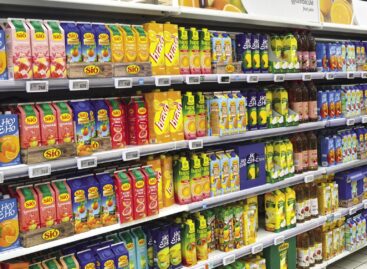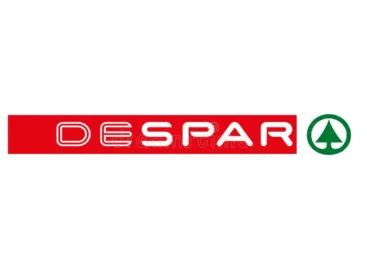Ice tea all stars
This article is available for reading in Trade magazin 2024/6-7

Márton Vecsei
head of soft drink
brands
HELL ENERGY
According to Márton Vecsei, head of soft drinks brands at HELL ENERGY Magyarország the ice tea market experienced a negative trend in terms of unit sales and volume in 2023, but there was a steady growth in value, driven by significant price increases. In the first three months of 2024 there was a 1.5% rise in volume sales and values sales were up 6.6%.
A series of challenges
2023 was a very important year for the XIXO brand of HELL ENERGY Magyarország Kft.
“One of XIXO’s pillars is to offer the best value for money to customers. Our aspartame-free ice teas are made with real tea extract and fruit flavours, and they are available in shops at affordable prices”,
emphasises Márton Vecsei. In May an exciting new tropical XIXO flavour will appear on store shelves.
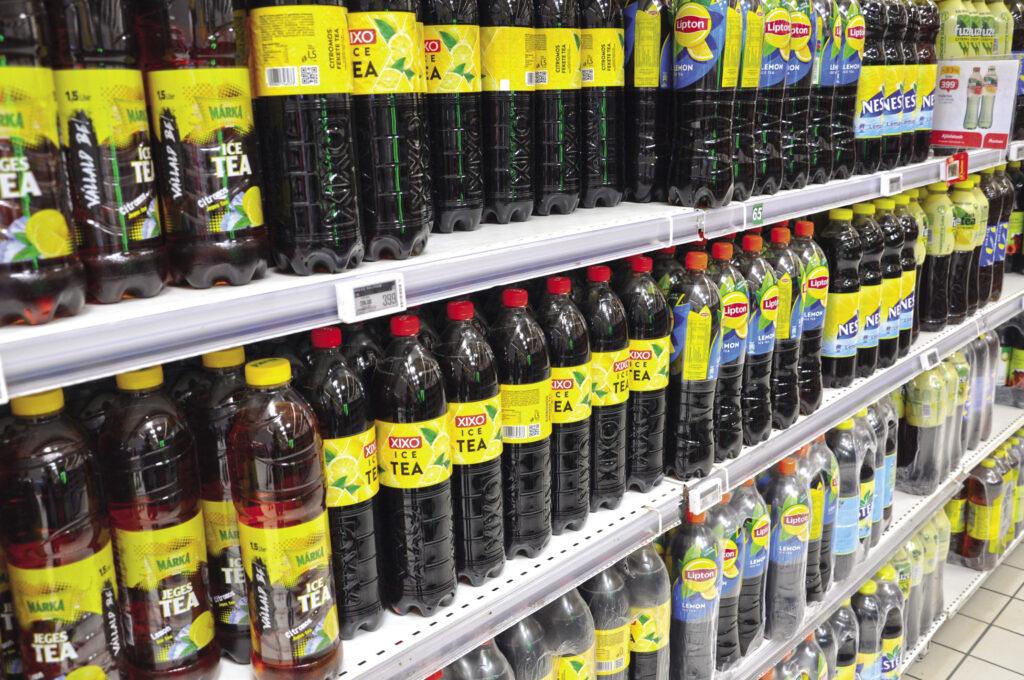
Pricing is a major tool on this market, but it is way, but nearly not enough for manufacturers to attract and retain consumers

Dániel Nyemcsok
brand manager
Szentkirályi
Magyarország
“The transition to the DRS system, introduced at the beginning of 2024, is a major test for everyone involved – manufacturers, distributors, retailers and even consumers”,
says Dániel Nyemcsok, brand manager of Szentkirályi Magyarország.
There is strong seasonality in the ice tea category.
Sustainable ambitions
Szentkirályi Magyarország puts great emphasis on optimising supply chains, and Lipton has a global and local objective to support the sustainable operation of tea farms and to protect local ecosystems. Lipton has lost market share, which the company believes is mainly due to the fact that price was the primary consideration for customers during the economic crisis period. This year a new green ice tea is launched, bringing the popular strawberry flavour to consumers in a sugary version. Private labels are gaining ground in the ice tea market too, with low price being the main driver, and discounters are strengthening among retail channels.
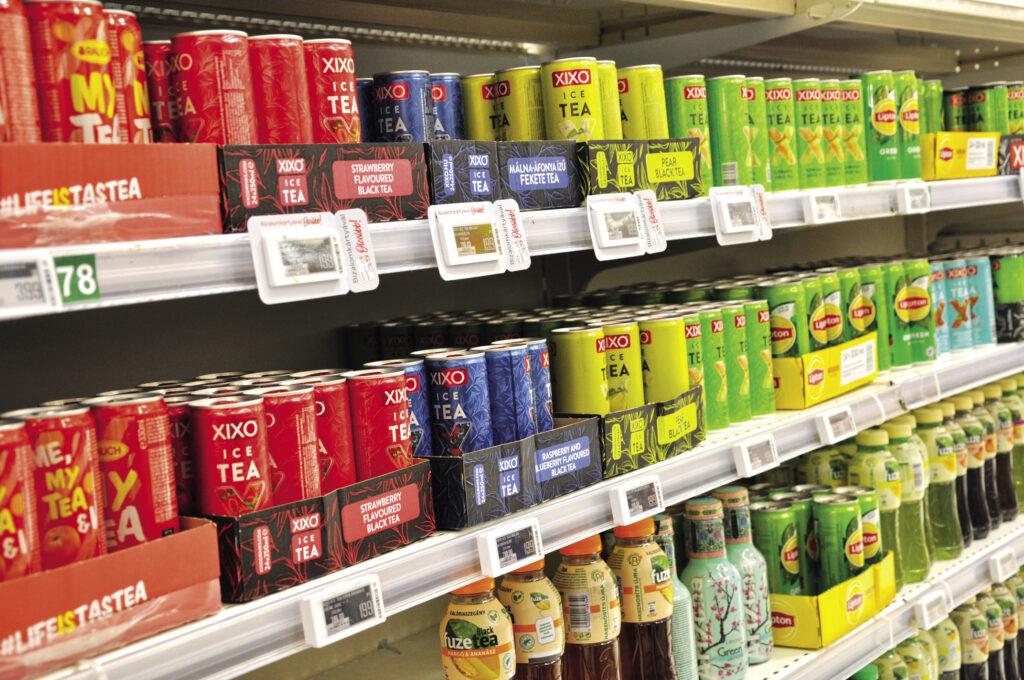
The segment that specifically demands smaller, ready-to-go packs keeps growing stronger
Lower sugar content
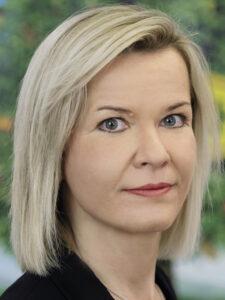
Anett Polyák
trade marketing
manager
Rauch Hungária
Rauch is present in the ice tea market with three brands, Rauch MyTea, which is aimed at a broader consumer base, Juice bar tea, and Yippy ice tea, a brand specifically for children.
“For Rauch MyTea this year is all about renewal besides regular innovation. The entire portfolio and brand strategy will be refreshed, as well as the brand’s image and colours – the flavours will remain unchanged”,
promises Anett Polyák, trade marketing manager of Rauch Hungária Kft.
In addition to the brand renewal, they are also introducing three new Rauch MyTea flavour combinations in can format: lychee-sour candy, strawberry-popcorn, and raspberry-marshmallow. As for the Rauch Juice bar tea brand, it targets health-conscious shoppers who try to follow a balanced diet. Thanks to consumers becoming increasingly health-conscious, sugar reduction is becoming a major trend.
New products keep coming

Patrícia Peres
brand manager
Maspex Olympos
With Maspex Olympos Kft.’s Nestea brand the basic flavours account for the majority of sales. These products are also performing very well in zero versions.
“This year we have two new additions to our portfolio. Firstly, two of our most popular, refreshing, fruity flavours lemon and peach become available in 330ml aluminium cans. Secondly, Nestea is bringing an exciting new ice tea to domestic consumers: a pear flavour combined with smooth vanilla”,
informs brand manager Patrícia Peres.
The zero segment is still strong in Hungary in every category, but this trend is weaker in the ice tea market, may be because many ice teas are fundamentally low in sugar or the essentially positive and health-conscious consumer perception of tea as an ingredient.

Adrienn Horváth
marketing director
Márka Üdítőgyártó
Adrienn Horváth, marketing director of Márka Üdítőgyártó Kft.:
“For about a third of customers a sense of closeness to the brand, tradition, being sugar-free, having a long-standing market presence, attractive packaging and Hungarian origin are important”.
Ready for a change

Attila Kaszás
managing director
Viwa product Europa
Márka Üdítőgyártó Kft. is committed to green efforts and the company is ready to comply with the legal obligation to bring its entire portfolio into the deposit return scheme (DRS) by the 30 June 2024 deadline. Having seen the effectiveness of the schemes already in place, they believe this is now a major and indispensable step towards the implementation of a circular economy model, in order to ensure zero waste. This will be made possible by achieving a selective waste collection rate of over 90%. Viwa product Europa Kft. has entered the ice tea market as a new player.
“Our ice tea products have performed above expectations, but we know that the investment will only bring further real growth from this season”,
explains managing director Attila Kaszás.
Viwa ice teas are sweetened with stevia and contain zero sugar. Viwa is the only company to make ice teas with this nutritional value using organic tea. After the popular 600ml PET bottle products, a 330ml aluminium can HoReCa version will be launched this year. //
Branded products still dominant in the ice tea category
In the period from April 2023 to March 2024, Hungarian shoppers purchased 103 million litres of ice tea for more than HUF 34bn, reports the NIQ retail index.


Guest writer:
Zsófia Horváth
analytic insights associate
NIQ
This represents an increase of 9% in value compared to the previous period, while volume sales decreased by 11%. As in the previous period, value sales were split 84:16 between manufacturer brands and private labels. In value terms private labels and branded ice teas grew at almost the same rate, by around 8-9%. In volume terms, however, there was a significant decline of 22% for private labels, which isn’t surprising given the nearly 40% hike in price levels. By contrast volume sales of manufacturer brands fell by 7%, while their average price level per litre rose by 18%. Black tea accounted for almost three quarters of the market and the best-selling flavour was once again lemon – 28% of ice teas sold was lemon flavour. In terms of size 1.5-2 litre products were the leaders, realising three quarters of sales. //
Ice tea: the category is a bit frozen compared to other non-alcoholic drinks
In the ice tea category we could see a 9% decline in volume in February 2024 compared to the previous year.


Guest writer:
Krisztina Bodnár
former business development
manager
Consumer Panel Services
Although there was a double digit sales growth in value, this growth was below the inflation rate. Somewhat surprisingly sales of branded ice teas barely fell. What dropped remarkably in volume were private label product sales! The buying frequency of private label (PL) ice tea was limited to 5 times a year, with the volume purchased per occasion dropping below 3.5 litres. Discounters now account for 33% of total sales. The price of PL products increased by 40% and branded ice teas cost 16.5% more. Among flavours peach is unbeatable, but the popularity of the “pure” green tea flavour is declining year on year. Households buy ice tea 12 times a year – carbonated soft drinks are put in the shopping basket 30 times per year (mineral water 28 times a year). While the average household spends HUF 10,000 on ice tea, they purchase carbonated soft drinks for HUF 29,500. //
Related news
A change of era in the glass
🎧 Hallgasd a cikket: Lejátszás Szünet Folytatás Leállítás Nyelv: Auto…
Read more >MOHU: 5,200 return points are in operation, but 47 larger settlements still do not have RE points – public “enema” machines may be introduced
🎧 Hallgasd a cikket: Lejátszás Szünet Folytatás Leállítás Nyelv: Auto…
Read more >Despar Italia realises EUR 1.1bn private label sales in 2025
🎧 Hallgasd a cikket: Lejátszás Szünet Folytatás Leállítás Nyelv: Auto…
Read more >Related news
Innovations, success stories and awards on the same stage
🎧 Hallgasd a cikket: Lejátszás Szünet Folytatás Leállítás Nyelv: Auto…
Read more >Farewell day at the 60th anniversary EuroShop trade fair
🎧 Hallgasd a cikket: Lejátszás Szünet Folytatás Leállítás Nyelv: Auto…
Read more >


